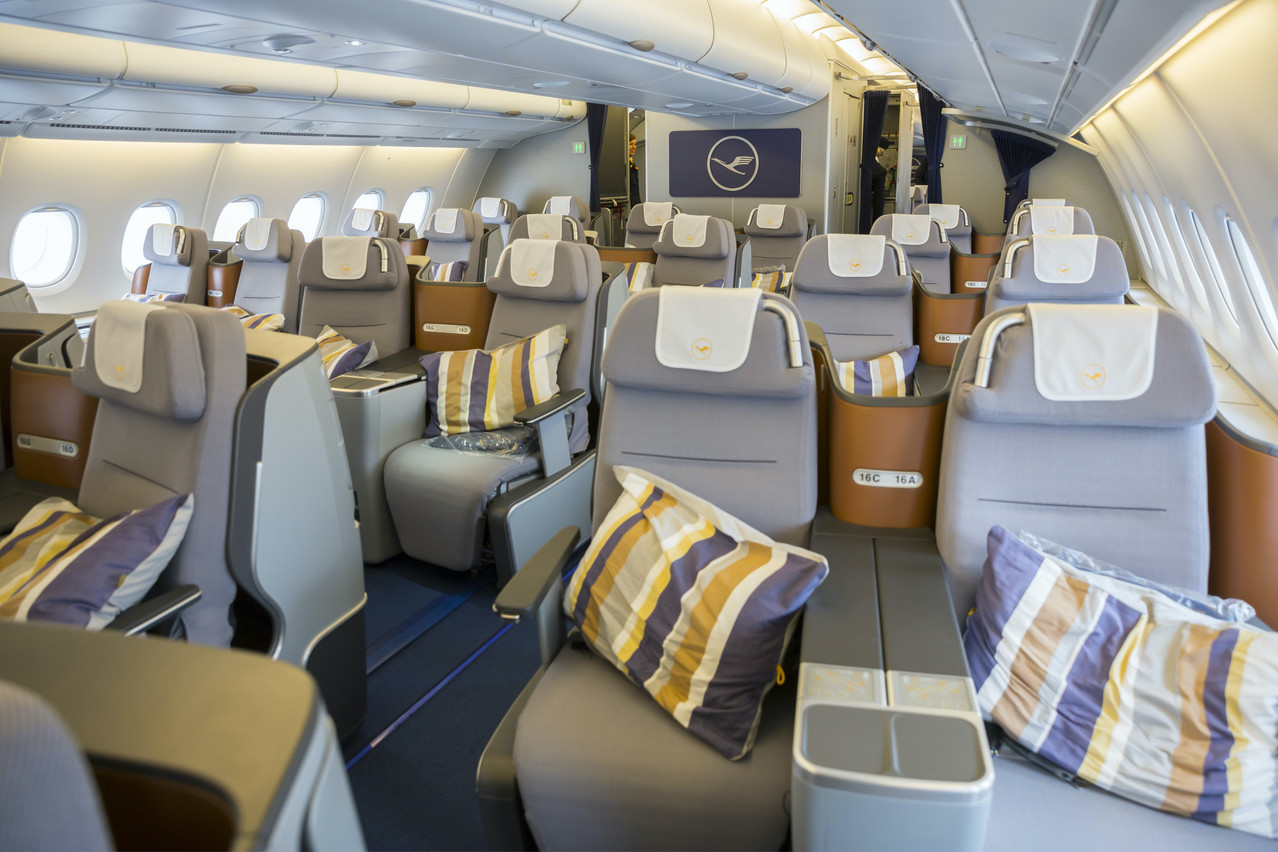"The solution to Lufthansa's 'ghost flights' problem is simple: just sell those seats to consumers." After laying siege to the European institutions and some of the airline industry's organisations, Ryanair is boldly moving forward.
While Lufthansa had indicated that it would have to operate 18,000 flights this winter without many bookings, so as not to risk losing its slots, the low-cost airline is pushing back against the German company. "If Lufthansa really needs to operate these flights (only to prevent the release of these slots to competing airlines), then it should be forced to sell these seats to the public at low prices. German and European citizens have already bailed out Lufthansa with billions in state aid to it and its subsidiaries; Brussels Airlines, Swiss and Austrian, and instead of operating empty flights just so it can block slots, Lufthansa should release the seats on these flights for sale at low prices to reward German and European taxpayers who subsidised it with billions of euros during the Covid crisis," it said in a statement.
Lufthansa loves to cry crocodile tears over the environment when it is doing everything it can to protect its slots.
"Lufthansa loves to cry crocodile tears over the environment when it does everything it can to protect its slots. Slots block competition and limit choice at major airports like Frankfurt, Brussels Zaventem or Vienna, among others. If Lufthansa doesn't want to operate 'ghost flights' to protect its slots, just sell those low-cost seats and help speed up the recovery of short-haul and long-haul air travel to and from Europe," insisted Irish airline CEO Michael O'Leary. "Ryanair is again calling on the European Commission to force Lufthansa and other state-subsidised airlines to free up slots they do not wish to use so that low-cost 'ghostbusters' like Ryanair, among others, can offer choice, competition and lower fares at these hub airports."
28 March, too early to raise rates
Traditionally, airlines try to get the best take-off and landing slots in order to sell tickets to their customers. These slots are becoming increasingly rare and expensive as the airline industry develops, and are only retained if the airline operates them 80% of the time. As is regularly the case during a crisis, the authorities lowered this rate to 50% during the Covid-19 pandemic, before indicating that they would gradually raise it again. On 28 March at the end of the winter period, for the time being, the rate will rise to 68%.
A company that does not fly to a destination at a specific time risks losing its valuable slot
But for many airlines, the Omicron variant has ruined a timid recovery in traffic, and getting the figure back up is a nightmare. This is the case for Lufthansa, even though the European Commission has calculated that the German company was flying well over the 50% allowed - and could therefore afford to cancel some flights.
This is also the case for Luxair, which mentions, "an economic impact of several hundred thousand euros". The national company considers that the decision goes, "against the social and environmental conduct of an airline”. On certain routes, it estimates that half of its airport slots are at risk, whereas as a general rule, this represents only a quarter of the slots at regular airports.
Luxair in a multi-layered front
"Luxair joins all airlines in Europe in urgently appealing to the European Commission to ask for immediate and retroactive relief for the 2021-2022 winter season from the airport slot policy, for the duration of the Covid situation. In this respect, the airline officially welcomes the steps taken by the German, Dutch and Luxembourg governments in favour of this measure," it said by e-mail.
To Delano, Luxair also wrote it was forced to keep some flights, “which should have been deleted due to a lack of a sufficient fill factor,” so as to keep slots essential to long-distance business and leisure flights. “During the 2021-2022 winter season, Luxair estimates an economic impact of several hundred thousand euros linked to the protection of these airport slots,” it added.
From 28 March onwards, the regulations on slots will go from 50 to 64%, the airline explains, meaning that companies will have to match this or lose their slots. The rate is “too high”, said Luxair, “and goes against social and environmental conducts airlines have to respect.”
On 12 January, seven directors-general of civil aviation, including Luxembourg's Marc Reiter, asked the director-general of the European Commission's DG Move, Henrik Hololei, for the suspension. Another front is opening up for the EU, as regulators of Asian hubs such as Singapore and Hong Kong have threatened Europeans with retaliation if European airlines are "forced" to fly empty to them. They say it will take longer for their long-haul carriers to recover and fly to Europe.
Lufthansa's attack on the market has reopened discussions at the International Air Traffic Organisation and the European Parliament, where there are calls for a secondary market trading system. In other words, the slots would remain the property of one airline, which could, however, transfer their use to another airline for a short period.
Luxair has openly joined other airlines in Europe in their call to lighten the legislation on slots amid the current spread of Omicron, it told Delano.
This story was first published in French on . It has been translated and edited for Delano. Additional reporting by Delano.
